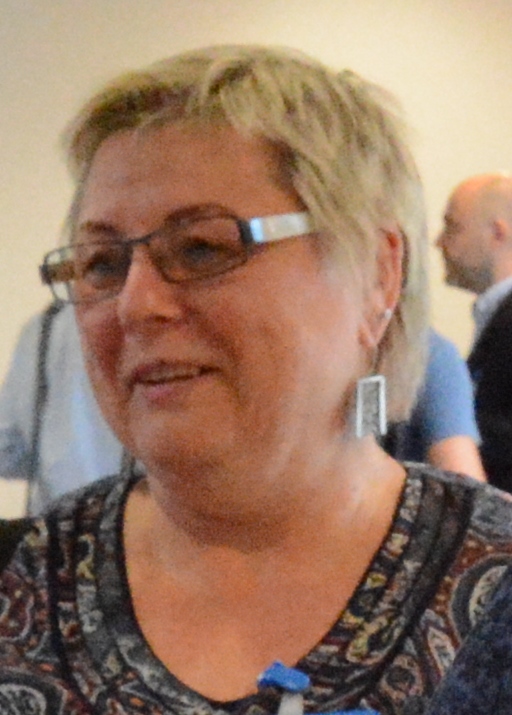
Thomas Wegner
ZF TRW, Germany
Main Moderator

Elli Goergiadou
Middlesex University, UK
Co-Moderator

Eva Breske
BOSCH Engineering GmbH, Germany

Kerstin Siakas
International Hellenic University, Thessaloniki, Greece, and Vaasa University, Finland

Thomas Schweigert
Expleo Group, Germany

Mirna Munoz
CIMAT, Mexico
The studies presented this year are valid for a PI manifesto in general and not only specific to Software. Therefore we expand the manifesto for further branches and content, starting from 2021 onwards.
Eleven years since the inception of the SPI Manifesto and ten years since its publication many socio-technical developments have come about. Cloud, Containers and Microservices, Open Source Software production and mobile devices are now all far more prevalent. The Automotive Industry, and other large and complex systems like e-Government, e-Health, Travel and so on, moved to using Big Data and Artificial Intelligence. In addition to socio-economic challenges, these developments present legal, ethical, political, environmental and demographic challenges. As the late Rory O Connor emphasised: because organisations operate as parts of a larger ecosystem and society all these socio-technical and other factors prompt for analysis with the aim of constantly re-aligning the organisational strategy to shifting business environments to survey, stay competitive, add business value and achieve sustainability! The SPI Manifesto has always supported industry in their effort to understand, adapt and improve their processes. In this workshop, held jointly by academics and practitioners, we will debate and analyse the challenges and opportunities for quality improvements, based on the premise that an improved process results in quality improvement of the resulting products and services. Using a multidimensional approach and the STEEPLED (Sociocultural, Technical, Economic, Environmental, Political, Legal, Ethical and Demographic) analysis tool, we will share ideas and experiences which will be encapsulated the findings in concrete proposals for the adaptation, evolution and extension of the SPI Manifesto.
Please participate in the SPI manifesto survey about how social factors influence the success (values and principles). This will be used as input to the SPI workshop.
Also an initiative has been started to build an SPI case study and knolwedge library for EuroSPI. On the one hand a SPI database of case studies will be set up (shared work of Egypt SPI Consortiu, Japanses SPI consortium and planning to involve Poznan Supercomputing centre). And secondly ISCN is setting up a NID server (Networked Interactive Digital Material) supported by Prof. Hermann Maurer, IICM, TU Graz, to store knowledge and link knowledge from important SPI materials / books. Every EuroSPI conference will deliver y a compendoum of presentations like a book and link all relevent studies and data in the cloud from there, as a starting point.
And we also support the strategy assessment tool based on ISO TR 33014 for improvability analysis of orgaisattions, originally developed by the Danish partner Whitebox.
Workshop Program 05.09.2024
Elli Georgiadou, Harjinder Rahanu, Middlesex University London, London, UK, Kerstin Siakas, International Hellenic University, Thessaloniki, Greece, and University of Vaasa, Finland, Errikos Siakas, National Archaeological Museum, Thessaloniki, Greece, Dimitrios Siakas, Häme University of Applied Sciences, Finnland, Margaret Ross, Geoff Staples, Solent University, Southampton, UK
Otto Vinter, Roskilde University, Denmark, Peter H. Carstensen, University of Copenhagen, Denmark
Tomas Schweigert, Bettina Frischhut, Expleo Technology Germany GmbH
Interactive session with Tomas Schweigert - Play 4 SPI
19.30 - 20.15 Classical Music Event
Karol Danis and Anton Bashynskyi are exceptional musicians who play classical music at EuroSPI social events since 2021 and have both won a number of international prizes. See the profile of Karol Danis and of Anton Bashynskyi.
Music Program:
F.M. Bartholdy: Fantasie (Klavier solo)
J.Brahms: Adagio von Violine Sonate dmol
P.I.Tchaikovsky: Souvenir d’un lieu cher, – Mélodie
A.Dvořák: Romantische Stück
J.Massenet: Méditation aus Thais
F.Kreisler: Three Old Viennese Dances
R.Strauss: Morgen
20.30 - 23.30 Gala-Diner at the Bamberger House.
Workshop Program 06.09.2024
Key Note 5: Consistency for more than one Threat Analysis and Risk Assessment and Security Element out of Context Experiences , Dr Thomas Liedtke Magility, and Dr Richard Messnarz, ISCN
Key Note 6: From Pharaohs to the Future: Iterative Engineering Excellence Across Millennia
Samer Sameh is a principal ASPICE Assessor, SAFe program consultant and Valeo senior process improvement manager, and Aly GadElRab is the Software Test Lead at Valeo's Lighting Division, VALEO, Egypt
Coffee Break
So NORIMATSU, Makoto OOMORI, Keiko MIZUTA, Aiichiro NIWA, Yoshiyuki ANAN, Kiyoshi ENDO, Japan Software Process Improvement Consortium (JASPIC), Tokyo, Japan
Khaled Badr, Mourad Mounir, Software Excellence, Leading OEM, Berlin, Germany, Samer Sameh, Valeo, Egypt
Plenary: An outllook to the future EuroSPI Conference, Academy, Certificates and Service Eco-System - A Vision of Futire SPI, Dr Richard Messnarz, sharing a vision, EuroSPI
Call for Papers
Please follow the following steps for submitting a paper:
- Your thematic topic paper should comprise 10-12 pages.
- Your paper has to be conform to the Springer CCIS format which is the same as the Lecture Notes in Computer Science (LNCS) format (please see the author guidelines of Springer)
- The paper has to be uploaded to the EuroAsiaSPI² conference website (see below).
- Authors of accepted papers will be asked to write a final paper of 10 to maximum 12 pages and to prepare a 20 minutes PowerPoint presentation.
- The final paper has to be uploaded to the EuroAsiaSPI² conference website again.
- Papers shall reference the SPI Manifesto (find relationships to values and principles or propose new values and principles to be added).
Note: To publish the paper in the proceedings the authors have to sign a copyright form and at least one of the authors has to present the paper at the conference. The paper will be published in printed form and electronically and therefore we need all source files.
Please read first the author submission guide. More...
Also see "Thematic Paper Submission for one of the 10 workshop communities" for more information
Thematic Topics
Values and principles of the SPI Manifesto,organisational best practices, experiences with
bad practices, update of the SPI-Manifesto with
new success stories.
Submission Dates
11.04.2025 (extended to 30.04.2025) First Thematic Paper and Research Paper Submission
09.05.2025 (extended to 23.05.2025) Review by International Programme Committee and Notification of Acceptance (EuroAsiaSPI² Paper Review Form is used)
20.06.2025 Camera Ready Version of Paper for Book
09.08.2025 Early Registration Deadline (All presenters must register for the conference, otherwise the contribution is deselected)
05.09.2025 Upload of Powerpoint Conference Presentation
15.09.2025 Free Technology Day
17.09.-19.09.2025 Conference
SPRINGER Book Series
EuroAsiaSPI² is publishing an annual SPRINGER book and the EuroSPI books show a total of 1,4 million chapter downloads. The workshop papers will form a chapter for this thematic topic in the SPRINGER book.
Additional Information
Key Contributors
Key contributions to the Workshop will come from European initiatives which developed best practices for SPI. However, the workshop is open to include experts who are willing to share their best practices with the community. We invite experts from knowledge areas like
• Good practices / experiences with the implementation of improvement programs
• Bad practices / experiences (what not to do) with the implementation of improvement programs
• Standards / programs supporting improvement coaching concepts
• Areas where improvement is most difficult to manage and how to solve this
• Key success factors
• Metrics to be used for tracking improvement programs
to share, discuss, and publish their experiences with EuroAsiaSPI.
Still the good/bad practices library needs to grow and we must constantly learn and also update the concept of programs like SPI manager.
Interactive Workshop Approach
From 2018 onwards all submitted papers in the book with reference the SPI manifesto or suggest extensions to the existing SPI manifesto. These new inputs will be considered in this workshop.<!--COMMENTING OUT PROGRAM

